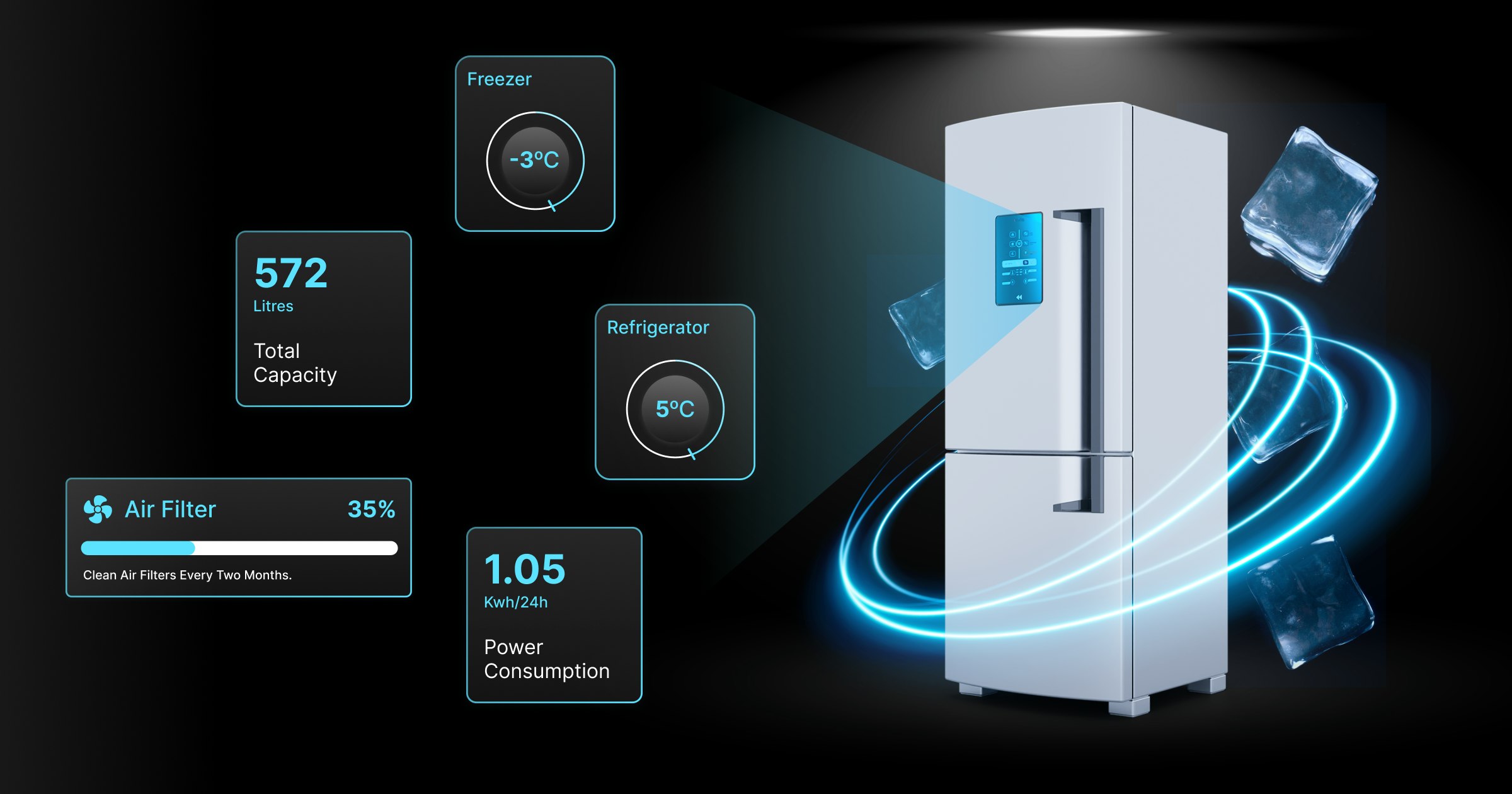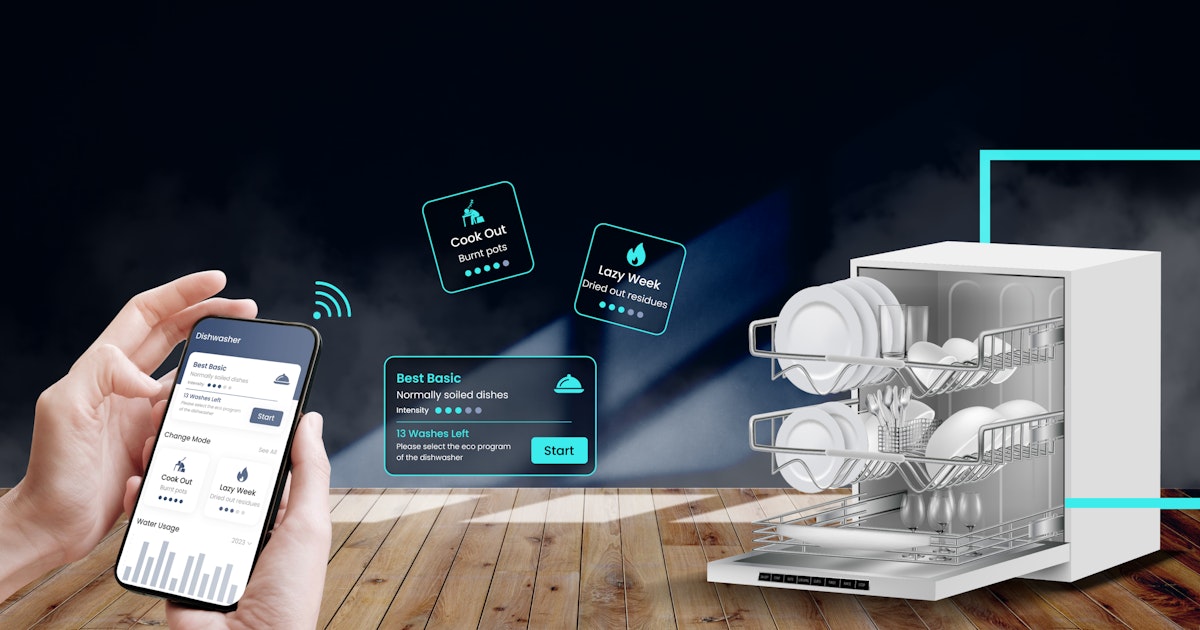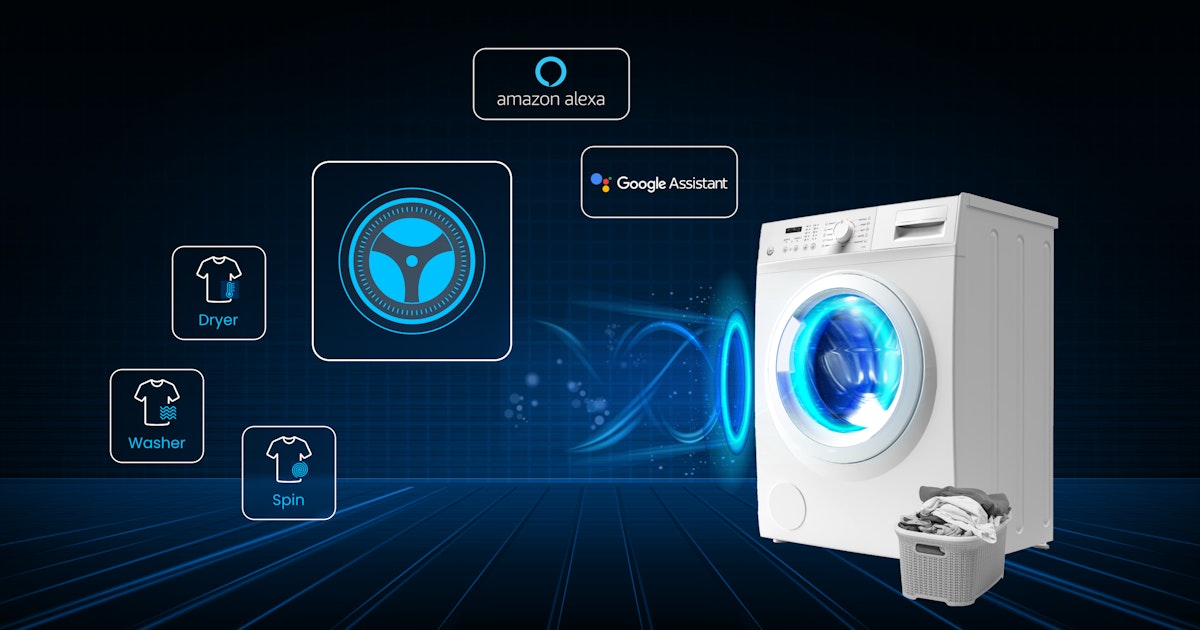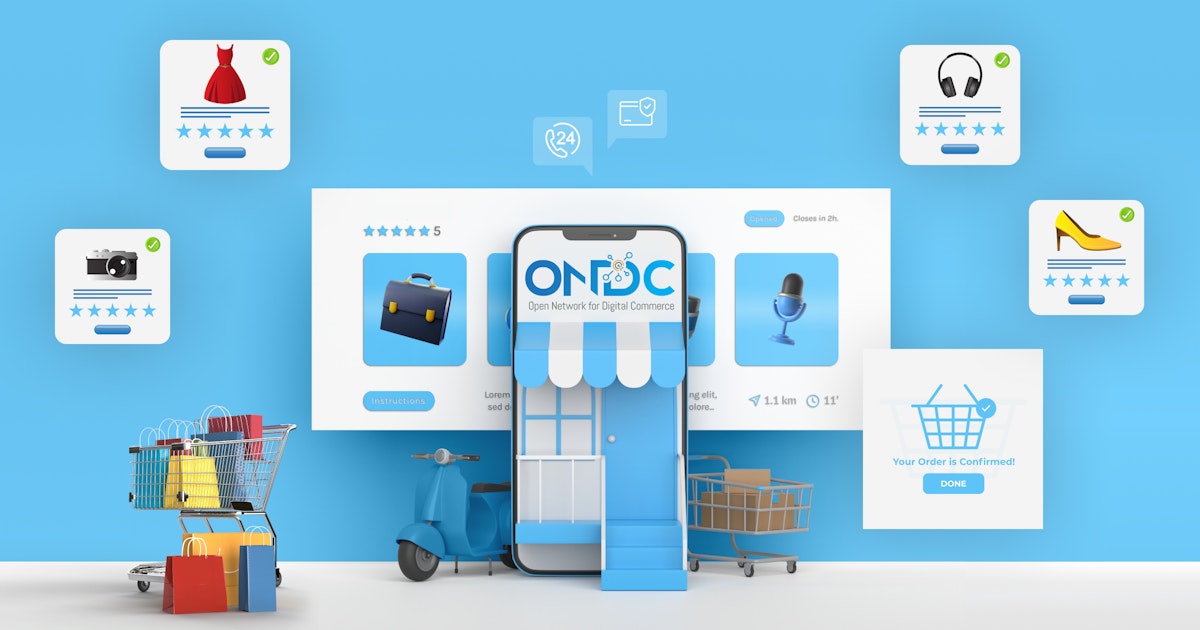Table of Content
What is an IoT & AI-enabled smart fridge?
A modern refrigerator with connectivity, sensors, and intelligent features can be called a "smart fridge." It provides owners with a more practical and efficient approach to overseeing their food storage. In contrast to ordinary refrigerators, smart refrigerators have several internal technologies that enable communication with other smart devices, people, and even the Internet.
When AI is combined with IoT, Original Equipment Manufacturers (OEMs) can build excellent refrigerator products with modern functionality. It is also popular as AIoT. The most recent example is Samsung’s AI-enabled smart fridge.
The appliance contains smart sensors and AI that suggest recipes to users, manage food inventory, and even create a shopping list. How amazing it is! This is just the beginning, the amalgamation of AI and IoT has all set to have a powerful future.
As per the recent statistics of market.us, the global market size of Artificial Intelligence in the Internet of Things is projected to reach around USD 201 Billion by 2023.
Let’s understand how AI in IoT makes electronic appliances, especially refrigerators, more useful for consumers.
AIoT (AI + IoT) smart refrigerator features
Various technologies like IoT and AI make refrigerators smart and provide sophisticated features. The features include:
Temperature optimization
Smart refrigerators use sophisticated temperature management technology to deliver the finest cooling outcomes. They monitor the temperature inside using sensors and adjust as needed. This technique enables the fridge to maintain food at the proper temperature for longer with less risk of spoilage.
Performance monitoring
Several performance-related variables are continuously tracked by sensors included in smart refrigerators. These sensors can detect changes in humidity, temperature, and several other factors affecting the refrigerator's work. It may identify any issues or anomalies by monitoring real-time performance and taking corrective action.
AI algorithms access the data collected by IoT sensors to reduce energy usage and anticipate maintenance requirements. By identifying potential issues in refrigerators, the technology ensures they operate efficiently.
Compressor speed modification
The compressor plays a key role in a refrigerator's cooling mechanism. The technology in smart refrigerators adjusts the compressor speed in response to cooling requirements. The speed adjustment feature adapts to the contents of the fridge and usage patterns to assist in minimizing energy consumption and provide consistent cooling performance.
AI can automatically adjust the refrigerator’s compressor speed. It can evaluate consumer usage patterns and conditions. By learning from these continuous adjustments, AI adapts the fridge’s operating environment and ensures efficient cooling and optimized performance.
Smart diagnosis
Firmware integration allows makers of smart refrigerators to increase the functionality of their sensors. Manufacturers can increase the sensors' general uses and the ability to identify certain elements by changing the sensors' firmware.
Smart refrigerators can process the data collated by IoT devices with the help of AI to diagnose the issues in appliances proactively. It improves the reliability and durability of the refrigerator.
Manufacturers can incorporate programming that enables sensors to find specific substances, such as ethylene, which can hasten food degradation. Another unique feature is that the sensors can advise consumers to consume or discard the impacted objects. Firmware integration lets sensors detect and track temperature and humidity levels more precisely. Perishable foods' shelf life and quality are increased.
How does an AIoT-powered smart fridge work?
IoT-enabled smart fridges combine various sensors, connectivity, and computing capabilities to provide advanced features. These components and technologies enable smart fridges to monitor their internal environment, track inventory, receive remote commands, and coordinate with other smart devices, providing users with enhanced convenience, efficiency, and food management capabilities.
Integrated with AI, the IoT-based smart fridge contains advanced analytical capabilities. This can help consumers with the varied benefits of
- Improved energy consumption
- Personalized user experiences
- Predictive maintenance
Let’s discover how the AI-integrated smart refrigerator operates.
Sensors:
Smart fridges are equipped with various sensors that monitor different aspects of the fridge's operation. These sensors can include:
- Temperature sensors to regulate the internal temperature accurately.
- Door sensors to detect when the fridge door is open or closed.
- Motion sensors to detect movement near the fridge.
- Camera sensors to capture images of the fridge's interior contents.
If we talk about AI, it analyzes the data collected by IoT sensors and provides actionable insights. It can anticipate when the refrigerator needs maintenance. This can prevent the appliance from unexpected breakdowns.
Connectivity:
The smart fridge is connected to the internet, typically through Wi-Fi or a cellular network. This connectivity allows it to communicate with other devices, including smartphones, and cloud-based services.
By improving the data exchange between the fridge and IoT devices, AI ensures effective connectivity. It can ensure that the data is analyzed correctly and the output is accurate. Providing real-time updates, AI helps you deliver a seamless experience to the consumers.
Mobile app integration:
Many smart fridges have companion mobile apps that allow users to remotely monitor and control the fridge's settings, receive notifications (e.g., when the door is left open), and access additional features.
Just like IoT, multiple mobile apps come with built-in AI capabilities. Consumers can connect the AI apps with the refrigerator. These apps recognize users' usage patterns and provide them with personalized recommendations and alerts.
Internal cameras:
Some smart fridges have built-in cameras that periodically capture images of the fridge's contents. These images can be accessed through the mobile app, allowing users to check what's inside the fridge without opening the door.
Smart refrigerators utilize image recognition technologies along with AI. These technologies can identify and track food items available in the fridge. It can check the freshness and inventory of the food products automatically and inform the consumers. Thus, it will be easy for the users to manage groceries.
Food management:
By analyzing the images from the internal cameras or through manual input, the smart fridge can keep track of the items inside and their expiration dates. It can then send reminders or suggest recipes based on the available ingredients.
Integration of AI helps users with effective food management. It tracks the food products’s quantity and expiration dates. Due to the advanced capabilities of AI, the smart fridge, nowadays, suggests recipes too based on the available ingredients. This helps users utilize their food products and avoid food wastage.
Energy efficiency:
By monitoring usage patterns and adjusting temperature settings accordingly, smart fridges can optimize energy consumption and reduce utility costs.
To reduce energy consumption, AI evaluates the usage patterns and a refrigerator’s environmental condition. Based on the fridge’s internal temperature, the technology adjusts the cooling to minimize energy consumption and decline overall energy cost.
Voice control:
Some advanced smart fridges can be controlled using voice commands through integration with virtual assistants like Amazon's Alexa or Google Assistant.
When it comes to AI, it is developed using the natural processing language. This helps in voice control. AI-enabled fridges to understand and implement voice commands accurately. It allows the consumers to interact with the smart appliances seamlessly.
Integrating AI with IoT in smart fridges takes functionality to the next level. AI enhances every aspect, from predictive maintenance and efficient energy use to personalized recommendations and automated food management. This synergy improves convenience, optimizes performance, and contributes to a more sustainable lifestyle.
7 Most Prominent Use Cases of AI + IoT in Smart Fridges
Smart refrigerators are a desired addition to contemporary homes because they have several benefits over conventional refrigerators. Here are some use cases of smart refrigerators:
1. Food expiration monitoring & alerts
Sensors in smart refrigerators can detect when food is approaching its expiration date. Through timely notifications, users are promptly informed when products are near their expiration dates. This feature encourages improved inventory control, lowers food waste, and guarantees that users eat healthier food.
AI tracks food purchases, consumption, and expiration, helping users utilize food products before they become waste.
2. Streamlined inventory management
Using a specialized mobile app, consumers can easily manage and monitor the inventory of their connected refrigerator from a distance. The app shows the fridge's inventory, letting consumers take stock of what they currently have. OEMs can pitch these capabilities to help consumers keep track of things and receive alerts when certain products run low.
AI provides access to real-time inventory details by identifying the food products available in the refrigerator. This helps customers to reduce the possibility of running out of required food items.
3. Amazon and Alexa integration
Smart refrigerators can be integrated with online stores like Amazon and voice assistants like Alexa. With the help of this connectivity, they provide an option to order groceries straight from their refrigerator, make automatic shopping lists, and even look up recipes using the ingredients in the refrigerator. It makes food shopping more convenient and efficient.
With the Amazon and Alexa interaction, AI gets smarter. It learns user preferences and shopping habits. Based on the analysis, AI shares personalized recommendations for different food items. Evaluating the consumption patterns, AI ensures the fridge always has a stock of preferred products.
4. Gas leakage detection
Smart refrigerators have sensors to identify gas leaks outside the appliance. They allow this early detection device to monitor prospective damages, protecting the safety and avoiding mishaps. Smart refrigerators offer security and protect the home by instantly warning customers of gas leaks.
AI analyzes the data collected by the IoT sensors. When the sensors detect gas leakage, AI helps users take steps for preventive maintenance by sharing the alerts on time. Thus, it reduces the risk and improves safety.
5. Personalized meal recommendations with AI assistant
Discover the wonders of AI integration in intelligent refrigerators. These refrigerators offer meal-planning options that remember user preferences, provide menu recommendations, and even autonomously place shopping orders.
For instance, if it detects eggs, spinach, and cheese nearing expiry, it may recommend a spinach omelet, provide the recipe to a connected device, and add missing items, like butter, to a grocery list or reorder them online.
6. Nutritional insights with image recognition
Learn about cutting-edge technology that goes beyond storage in smart refrigerators. Thanks to sophisticated sensors and image recognition technology, these refrigerators can assess the nutritional content of the food they contain, giving customers useful information about their eating habits and encouraging healthier living.
7. Automated grocery reordering
Through IoT and AI, smart fridges can predict when supplies are running low and automatically place orders for groceries with partnered stores or delivery services. This feature saves time and ensures essentials are always available.
For example, using weight sensors and image recognition, a smart fridge integrated with an AI system detects that your milk carton is almost empty. Based on your consumption patterns, it predicts you'll run out within two days and automatically places an order for your preferred 2-liter brand with an online grocery service like Amazon Fresh.
The fridge schedules delivery for the next day during your usual time slot, ensuring you never run out of milk. Once the milk is delivered and restocked, the fridge updates its inventory automatically, seamlessly managing your kitchen.
Let's Discuss Your Project!
Contact UsConclusion
These advanced appliances have revolutionized home kitchens, offering exceptional convenience, fresh food, and seamless connectivity. By integrating AI into IoT, smart fridges empower consumers with better food management, reducing waste through predictive maintenance, accurate diagnostics, and comprehensive data analysis. AI algorithms improve these capabilities by optimizing energy use and providing personalized food recommendations.
Are you a refrigerator manufacturer ready to integrate AI and IoT capabilities?
Book a Free 45-minute Consultation with Our Experts!
In this personalized session, our AIoT expert will:
Discuss AI and IoT integration opportunities in your refrigerator models
Recommend the best IoT sensors, firmware, and connectivity solutions that work seamlessly with AI
Develop a strategy for integrating an AI in an IoT-enabled smart fridge
Provide a clear roadmap for seamless AI and IoT integration and implementation






